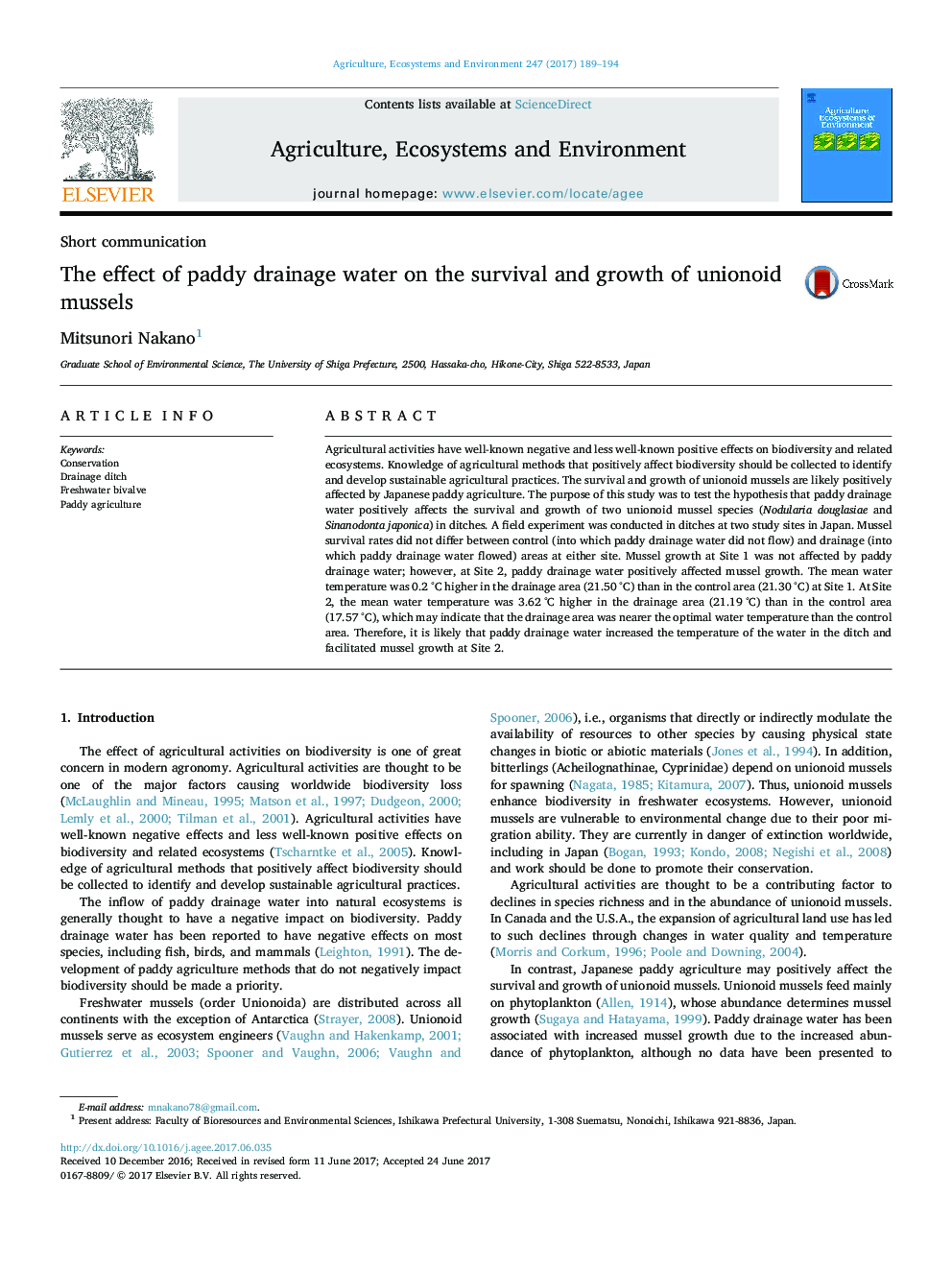| Article ID | Journal | Published Year | Pages | File Type |
|---|---|---|---|---|
| 5537992 | Agriculture, Ecosystems & Environment | 2017 | 6 Pages |
Abstract
Agricultural activities have well-known negative and less well-known positive effects on biodiversity and related ecosystems. Knowledge of agricultural methods that positively affect biodiversity should be collected to identify and develop sustainable agricultural practices. The survival and growth of unionoid mussels are likely positively affected by Japanese paddy agriculture. The purpose of this study was to test the hypothesis that paddy drainage water positively affects the survival and growth of two unionoid mussel species (Nodularia douglasiae and Sinanodonta japonica) in ditches. A field experiment was conducted in ditches at two study sites in Japan. Mussel survival rates did not differ between control (into which paddy drainage water did not flow) and drainage (into which paddy drainage water flowed) areas at either site. Mussel growth at Site 1 was not affected by paddy drainage water; however, at Site 2, paddy drainage water positively affected mussel growth. The mean water temperature was 0.2 °C higher in the drainage area (21.50 °C) than in the control area (21.30 °C) at Site 1. At Site 2, the mean water temperature was 3.62 °C higher in the drainage area (21.19 °C) than in the control area (17.57 °C), which may indicate that the drainage area was nearer the optimal water temperature than the control area. Therefore, it is likely that paddy drainage water increased the temperature of the water in the ditch and facilitated mussel growth at Site 2.
Related Topics
Life Sciences
Agricultural and Biological Sciences
Agronomy and Crop Science
Authors
Mitsunori Nakano,
